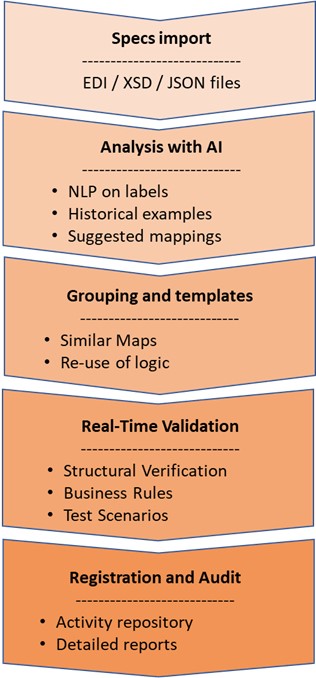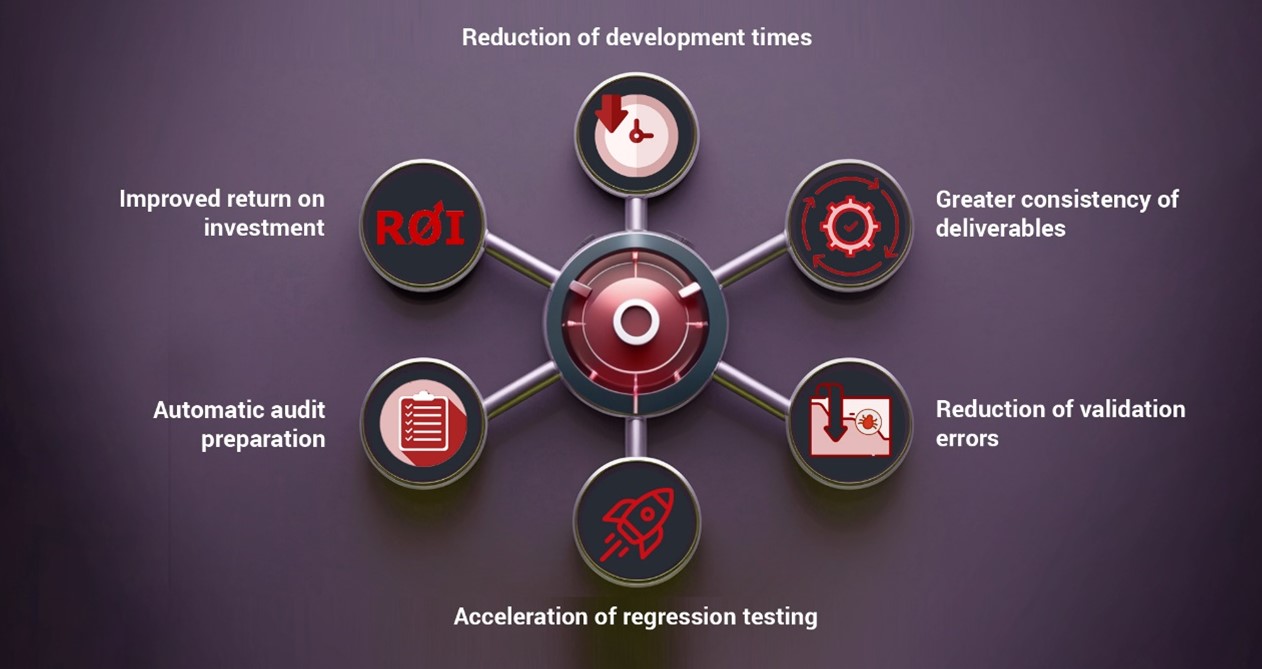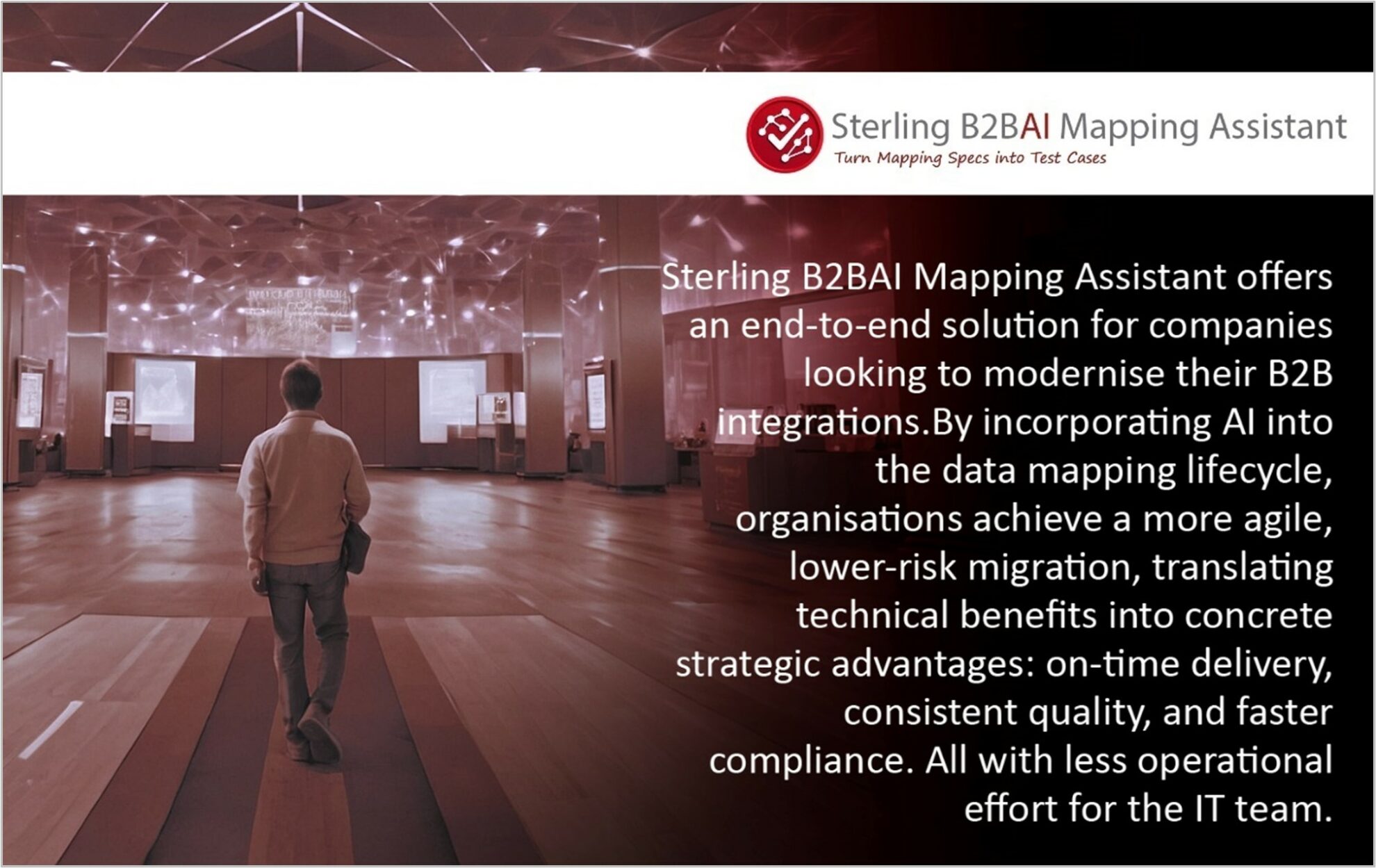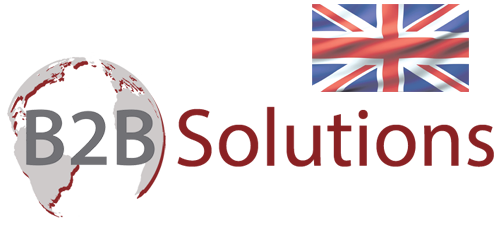Sterling B2BAI Mapping Assistant
Massive map deployment with maximum agility

Intelligent automation to migrate maps in IBM Sterling environments: analysis, validation and AI testing to speed up the process and ensure accuracy.
The era of global commerce demands robust and agile B2B integrations. Platforms such as IBM Sterling B2B Integrator support the exchange of documents between thousands of trading partners. However, migrating or upgrading these integrations often presents significant challenges.
Migrating data maps involves reviewing and adapting each existing transformation to new business rules and environments. Typically, this is done manually, examining EDI, XML or JSON specifications on a map-by-map basis. This process leads to delays in delivery, high probability of errors and maintenance issues.

Sterling B2BAI Mapping Assistant is a value-added solution that significantly accelerates the deployment of large volumes of Maps through the use of Artificial Intelligence.
Our solution drastically reduces development time and improves the quality of integrations. In this context, AI brings efficiency and accuracy, minimising the margin of human error.
Who is Sterling B2BAI Mapping Assistant for?
Sterling B2BAI Mapping Assistant is especially aimed at:
- Integration or Technical Architecture managers who wish to reduce the risks and deployment times of new maps.
- QA / Testing teams who require greater coverage without expanding resources.
Developers who spend too much time designing and maintaining test cases. - Integration Project Managers who manage multiple flows, environments and developments in parallel.

Key functionality
Grouping of similar maps
It automatically parses the structure of EDI, XML and JSON documents to identify data maps with common patterns. This grouping by similarity allows you to reuse mapping logic, standardise structures and speed up the creation of new maps based on existing models.
Business Impact:
- Faster development: Re-use of previously validated mapping components.
- Consistency guaranteed: Elimination of deviations in similar transformations
Validation of Generated Files
We train the AI to understand the input file structures, and mapping rules, which will allow it to validate whether the generated file is correct or contains data errors.
Validation is automatically performed on the generated files (e.g. EDI files or other XML/JSON messages) against the expected specifications (e.g. XSD or Sterling map definitions). The tool detects inconsistencies, incorrect formatting or non-compliant business rules, alerting the team immediately to correct errors before going to production.
Business Impact:
- Errors are detected in the validation phase: Optimisation of the production phase.
- Self-learning system: Improved accuracy with each validation.
Automatic Use Case Generation
The IA analyses the specifications to generate a structured document of detailed use cases (including test data and expected results) that serves to validate each map in both testing phases and compliance audits, speeding up the verification and documentation process.
This document is reviewed during the testing phase, and completed in a final testing phase to confirm the correct validation of the map.
Business Impact:
- Coverage of most tests from day one.
- Audit-ready documentation: Auto-generated test suites.
- Regression test accelerator: Reusable case library
How does it work?
Sterling B2BAI Mapping Assistant combines several advanced technologies to optimise map migration. It uses natural language models and deep learning to interpret the semantics of specifications and field names, making it easy to identify equivalencies between formats. In parallel, it performs automated structural analysis of EDI, XML and JSON definitions to understand the data structure of each message.
It also integrates a configurable business rules engine based on B2B standards (e.g. ANSI X12 or UN/EDIFACT validation rules), which automatically verifies compliance with internal regulations and policies during mapping. The system incorporates self-learning capabilities, which means that it improves over time: it learns from past corrections and validations to provide more accurate recommendations for future mappings. In addition, it is designed to be deployed in both on-premise and hybrid environments, adapting to different corporate architectures without compromising performance.
The solution is designed to integrate with the existing IBM Sterling B2B environment. It connects to existing map and definition repositories, extending native tools (such as the Map Editor) without modifying the infrastructure. In this way, companies can incorporate B2BAI Mapping Assistant quickly, without disrupting ongoing production processes.
This combination of artificial intelligence, specification analysis, rules engine and machine learning ensures a faster, more accurate and controlled migration process.

Workflow
Sterling B2BAI Mapping Assistant Benefits

- Reduced development time: By automating similar map analysis and replication tasks, the manual effort required is significantly reduced. IT teams can complete the migration of data flows in a fraction of the usual time, shortening project timelines.
- Fewer validation errors: Continuous real-time testing and automatic test case generation ensure that errors are caught early. This reduces production failures and rework, bringing greater reliability to integrations.
- Increased consistency of deliverables: Standardisation of mappings based on common patterns ensures that deliverables follow the same rules and conventions. This simplifies subsequent maintenance and ensures that business processes behave uniformly in any environment.
- Accelerated regression testing: With automatically generated test cases, each change to the system can be quickly validated. The team can run regression tests on mapped flows without manually building scenarios, ensuring that modifications do not introduce errors into previous integrations.
- Automatic audit readiness: The tool documents the mapping and validation process, generating comprehensive reports and traceability. This facilitates review by auditors or compliance teams, as each map has sample data and associated evidence of testing.
- Better ROI: Reduced development time and improved quality translates into lower overall project cost. Automation frees up resources that can be focused on higher value tasks, improving the ROI of integration initiatives.

Contact B2B Solutions if you are interested in learning more about Sterling B2BAI Mapping Assistant.
We will be happy to help you.


